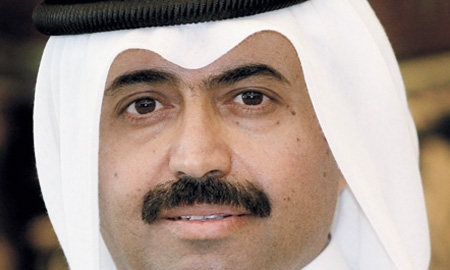Qatar Petroleum (QP), the state-owned company responsible for Qatar’s oil and gas industry, made history in 2010 by achieving a liquefied natural gas (LNG) production capacity of 77 million tons per annum (MTA). This significant milestone was made possible in large part by long-term partnerships with international oil companies such as ExxonMobil as well as by providing an investor-friendly environment and a focus on innovation.
In the 1990s, Qatar’s vision of developing an LNG industry was dismissed by many as being unattainable. Qatar’s large natural gas reserves were viewed as effectively stranded by the long distances between the emirate’s North Field and the end-user markets. However, with the global demand for clean, efficient energy rising rapidly, the Qatari government decided to develop the technologies to make commercialization possible. It encouraged financial investment and forming relationships with foreign partners.
Today, QP has many successful projects with major international oil companies and a worldwide distribution network for the country’s LNG.
Qatar’s proven natural gas resources are estimated to be nearly 900 trillion cubic feet, equivalent to almost 14% of the world’s total. The country is the third largest natural gas resource holder after Russia and Iran.
In 2009, Qatar exported 1.8 trillion cubic feet of LNG, about 20% of total global LNG trade, based on analysis in the U.S. Energy Information Agency’s recently-released Qatar Country Analysis Brief. Also, in the second half of 2009 LNG output surpassed crude oil production for the first time since Qatar launched its gas projects. The International Monetary Fund has projected Qatar’s LNG and related exports to be $33.2 billion for 2010 and highlighted the country’s “sizeable enhancement of LNG capacity” in a recent report.
| qatar’s proven natural gas resources are estimated to be almost 14% of the world’s total and qatar petroleum made history last year by reaching an LNG capacity of 77 million tons per annum |
Last December, Deputy Prime Minister Abdullah bin Hamad Al-Attiyah said, “The State of Qatar promised to realize the vision of His Highness the Emir for Qatar to reach LNG production capacity of 77 MTA of LNG by the end of 2010. This milestone brings to fruition years of investment in infrastructure and expertise that has enabled us to go from zero to 77 MTA in a mere 14 years. Today, Qatar has invaluable credentials as a key innovator in the global LNG market, with a reputation for delivering LNG to global markets safely, reliably and efficiently.”
Innovation is the major factor that has enabled Qatar’s LNG industry to flourish. At the Qatar Science and Technology Park in Doha, where ExxonMobil Research Qatar Limited is an anchor tenant, new ideas are researched and developed. Among other focus areas, research is being conducted into environmental management and LNG safety.
ExxonMobil has brought many important technologies to its partnership with QP, resulting in milestones such as production wells that are deeper and produce gas at flow rates higher than the typical well in the Gulf of Mexico and the North Sea.
Overseas, QP, ExxonMobil and ConocoPhillips have constructed the Golden Pass LNG terminal on the Sabine Pass waterway near Port Arthur, Texas. The terminal has the capacity to deliver 2.5 billion cubic feet per day of natural gas. This represents the average daily gas used by about 10 million households in the U.S.
Minister of Energy and Industry and chairman of QP Dr. Mohamed Saleh Al-Sada said, “The commencement of commercial operations at the Golden Pass terminal and pipeline marks another notable achievement in Qatar’s world-leading LNG business.”
This December, Doha will become the first country in the Middle East to host the World Petroleum Congress, further reflecting Qatar’s key role as a major provider of energy to the world.

0 COMMENTS